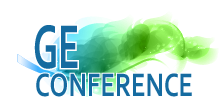Abstracts
General Education Conference 2017: Evolution and Transformation - Concurrent Sessions
Abstracts of Concurrent Session 1 : GE Teaching and Learning Pedagagies
Moderator: Dr Chan Fun Ting-
The Study of Learning Outcomes, Responsibility and Satisfaction of Students Using the “Flipped
Classroom” in the Subject of Innovation and Scientific Thinking
Nalin-on Nuiplot
Valaya Alongkorn Rajabhat University
- “The Incident Replay” – A Proposed Ethics Learning Activity for Business Students
Alvin Y T Wong
Hong Kong Community College
The Hong Kong Polytechnic University
Edmund S S Chan
Hong Kong Baptist University
- Using Mathematical Modelling to Inform Design of General Education Courses: Creating Synergisms
and Reducing Trade-offs
Mark A McGinley
Lingnan University
Abstracts of Concurrent Session 2 : Role of GE
Modrator: Dr Vicky Lee- Connecting the Self, Community and the World through Literature in GE Curriculum
Jodie Yik-sze LEE & Lorena Po-yin CHAN
College of International Education
Hong Kong Baptist University
-
Understanding Culture; Understanding History: Chinese Music Appreciation as General Education
Course in Tertiary Education
Martin Lee
Caritas Institute of Higher Education
- Best Practices in Giving Feedback across Curriculum: Implications for General Education
Practitioners
Svetlana Chigaeva-Heddad & Chrissy Burns
The Hong Kong Polytechnic University
Abstracts of Concurrent Session 3 : Implementation of GE Curriculum
Modrator: Dr Glenn Shive- Implementation of Wellness & Lifestyle Management General Education Elective
in Technological and Higher Education Institute of Hong Kong (THEi) with Blended
Approach: Mixture of Online and Face-to-face Delivery Format
Lee Lok Chun Janet
Technological and Higher Education Institute of Hong Kong
Vocational Training Council
- RE-EXAMINING “CREATION” – Using Art as a Powerful Narrative to Explore Life in
General Education
LEUNG Yuet Mei Sharon
HKU SPACE Community College
- Non-credit-bearing Programme Design in General Education — Curriculum Design
and Experience Sharing on CIHE Launching of Integrated Seminar and Community
Involvement
John C T Chow, Anna H N Ng, Martin C K Lee, Stephanie L Liu, Hannah Y Liu, Kevin H K Lam, Bobby H C Chan, Billy Y H Chow
Caritas Institute of Higher Education
Abstracts of Concurrent Session 4 : GE Teaching and Learning Pedagogies
Moderator: Dr Chan Fun Ting- The Integration of Body-Mind-Spirit Holistic Care in the Teaching of a GE Course
Ng Hoi Nga
Caritas Institute of Higher Education
- 人文與科學之間:通識如何「通」?
Ying Koon Kau
Caritas Institute of Higher Education
- Curriculum Design of General Education – Application of Howard Gardner’s Multiple
Intelligence (MI) Theory
Lucy S P Kong
College of International Education
Hong Kong Baptist University
- 「通識教育」與「服務學習」模式(Service-learning)及評估:以歷史系開辦的課程為例
Au Chi Kin
Hong Kong Shue Yan University
Abstracts of Concurrent Session 5 : Design of GE
Moderator: Dr Vicky Lee- 職業訓練定位的中文教育 — 以談判溝通及文學欣賞為例
Yi Yingying & Dr Chau Manlut
Technological and Higher Education Institute of Hong Kong
Vocational Training Council
- Fostering Global Citizenship through Sustainable Development Goals: A 3-credit
Curriculum in General Education for the Sub-degree/Degree Sector
Stephanie Lee
School of Professional Education and Executive Developmenton
The Hong Kong Polytechnic University
- A General Education Programme for the 21st Century
Chan Kit Sze Amy
Hong Kong Shue Yan University
- Experiential and Reflective Learning in the Course Design of Art, Self-exploration and
Spirituality
Zhou Dehui Ruth
Hong Kong Shue Yan University
Abstracts of Concurrent Session 6 : Student Experience and Feedback
Moderator: Professor Gray Kochhar-Lindgren- Student Preferences and Expectations: Some Practical Tips for Designers of English
Enhancement Programmes
Marine Yeung
Tung Wah College
- Initial Validation of a Measurement Scale Assessing Chinese Business Students’
Orientation Towards Corporate Social Responsibility in Hong Kong
Wong Po May Daphne
Hong Kong Community College
The Hong Kong Polytechnic University
- Pivot run of Student Feedback on Measuring Effective Communication and Ethnical
Citizenship in Student Development Activities
Lau Yui Yip Joesph & So Chi Ho Joseph
Hong Kong Community College
The Hong Kong Polytechnic University
- Experiences in Implementing Electronic Questionnaire on Student Learning Activities
So Chi Ho Joseph
Hong Kong Community College
The Hong Kong Polytechnic University

